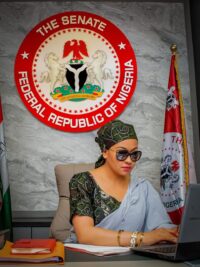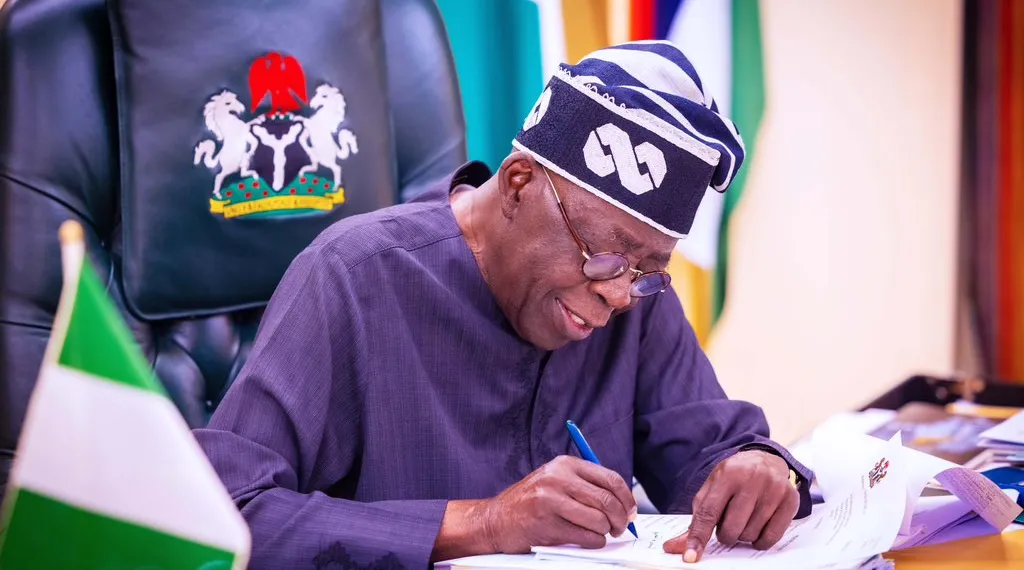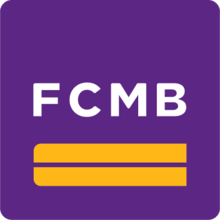Ladi Balogun, Chief Executive Officer, First City Monument Bank
December 10, 2018/Fitch Ratings
Fitch Ratings has affirmed First City Monument Bank Limited’s (FCMB) Long-Term Issuer Default Rating (IDR) at ‘B-‘. The Outlook is Stable. A full list of ratings is at the end of this commentary.
KEY RATING DRIVERS
IDRS, VR AND NATIONAL RATINGS
The IDRs of FCMB are driven by its standalone credit profile, as defined by its Viability Rating (VR). This reflects FCMB’s weak financial metrics, partly due to the bank’s limited company profile and higher-risk business model, as well as the challenging operating environment in Nigeria.
The operating environment in Nigeria remains tough, with the country having recently emerged from a recession. Although access to foreign currency (FC) has eased, many borrowers retain limited capacity to service obligations and there are few opportunities for banks to grow their loan portfolios.
FCMB’s modest franchise is illustrated by the bank’s small (4%) market share of domestic credit. In our view, this drives a high-risk business model, including high concentrations and a high volume of lending to smaller corporates and commercial customers. This leaves the bank particularly vulnerable to macroeconomic challenges. The franchise also constrains earnings, with operating profitability well below the sector average due to high loan impairment charges (LICs) and an above-average cost of funding, hurting FCMB’s ability to build up capital.
We view FCMB’s asset quality position as vulnerable. FCMB’s low impaired loans/ gross loans ratio (5.7% at end-1H18) relative to peers’ has been helped by a steady flow of write-offs in 2017. Stage 2 loans under IFRS 9 accounted for 13% of gross loans at end-9M18 and comprised mostly restructured oil and gas exposures, which are vulnerable to another oil price correction. FCMB displays high credit concentration by sector and by obligor, exposing FCMB to the risk of unexpected losses.
We view FCMB’s capital position as no more than adequate with a Fitch Core Capital (FCC) ratio of 16.4% in 2017. Capital, in our view, is vulnerable to deterioration in asset quality notwithstanding a sharp increase in reserve coverage of impaired loans, following the implementation of IFRS 9.
FCMB’s FC liquidity improved in 2017, in line with easing market conditions. FCMB has remitted all state-related FC deposits to the Central Bank of Nigeria’s treasury single account (TSA) and has cleared all extended trade-finance obligations. However, FC liquidity remains tight, although positively the bank has limited FC short-term wholesale/bilateral obligations.
The Stable Outlook on FCMB’s Long-Term IDR reflects our base case expectation that the bank’s financial metrics will not change significantly over the coming year.
FCMB’s National Ratings reflect the bank’s creditworthiness relative to the country’s best credit and to that of peers operating in Nigeria.
SUPPORT RATING AND SUPPORT RATING FLOOR
FCMB’s Support Rating (SR) and Support Rating Floor (SRF) reflect uncertainty over the ability of the authorities to support banks, particularly in FC. In addition, there are no clear messages from the authorities regarding their willingness to support the banking system. Our view is that senior creditors cannot rely on receiving full and timely extraordinary support from the authorities should a bank become non-viable. Therefore, the SRF of all Nigerian banks is at ‘No Floor’ and all Support Ratings are ‘5’.
RATING SENSITIVITIES
IDRS, VR, AND NATIONAL RATINGS
FCMB’s IDRs are sensitive to a change in the bank’s VR. Although not a base case, a downgrade of the VR is most likely to be driven by weak performance of the bank’s restructured oil book with migration of some exposures from stage 2 to stage 3 loans, in turn likely to be driven by renewed pressure in oil prices.
Positive rating action is unlikely in the short-term given the still fragile operating environment and FCMB’s niche franchise. An upgrade of the bank’s VR would require a material improvement in the Nigerian operating environment or a significant expansion of the bank’s company profile translating into better financial performance.
FCMB’s National Ratings are sensitive to a change in the bank’s creditworthiness relative to other Nigerian bank issuers’.
SUPPORT RATING AND SUPPORT RATING FLOOR
An upgrade of FCMB’s IDRs may also result from sovereign support being factored into the bank’s ratings. FCMB’s SR and SRF could be upgraded and revised higher, respectively, if Fitch sees an improvement in the authorities’ ability to provide support in FC, particularly for a systemically important bank. An improvement in the ability to support could be indicated by further accumulation of external reserves and a sustainable exchange rate.
The rating actions are as follows:
Long-Term IDR affirmed at ‘B-‘; Outlook Stable
Short-Term IDR affirmed at ‘B’
Viability Rating affirmed at ‘b-‘
Support Rating affirmed at ‘5’
Support Rating Floor affirmed at ‘No Floor’
National Long-Term Rating affirmed at ‘BBB(nga)’
National Short-Term Rating affirmed at ‘F3(nga)’













